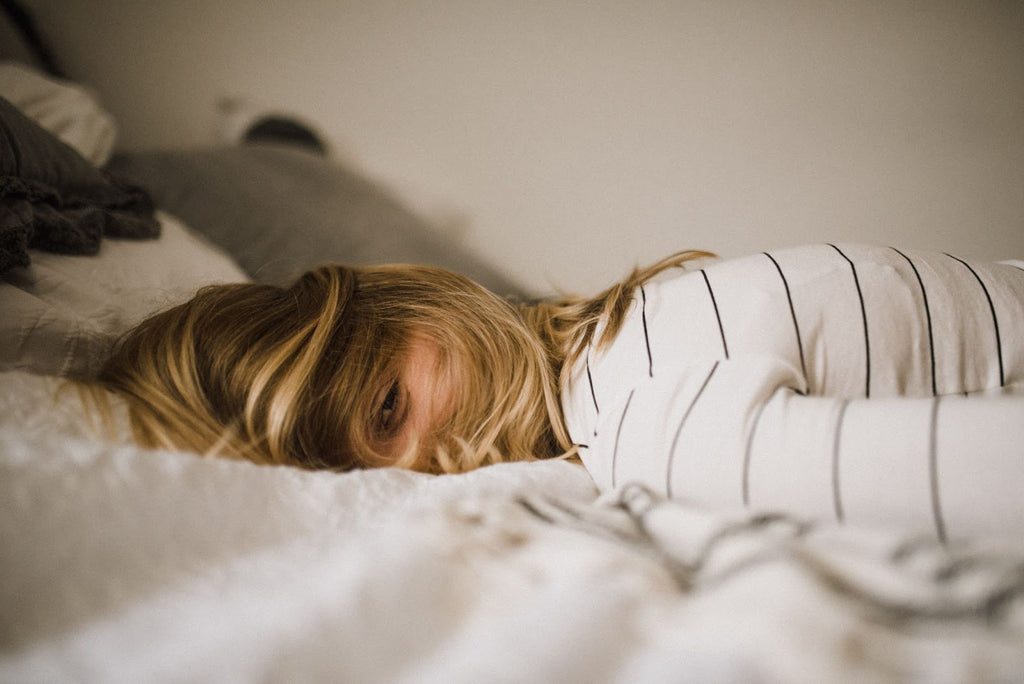Getting up in the middle of the night to go to the bathroom each night is normal, right?
What if we told you that there could be other causes to this midnight urge to use the bathroom beyond a high fluid intake before bedtime? Medically, the urge to urinate that wakes you each night is known as nocturia, primarily if it happens multiple times.
Nocturia may not be an issue for everyone, same as sleep apnea may not be an issue for everyone. But in many cases, sleep apnea and nocturia go hand in hand. Meaning, many nocturia patients may also have sleep apnea.
What is nocturia?
In short, nocturia a condition causing you to wake up and urinate at night. It is also sometimes known as nocturnal urinary frequency and is seemingly more common in older adults, but both men and women can experience it.
Patients who experience nocturia are often waking up multiple times in the night to pee, which may be associated with general urinary frequency throughout the day. Patients that experience nocturia essentially urinates more frequently, not with more volume (that’s a different condition: polyuria).
What is sleep apnea?
Sleep apnea is a medical condition that can sometimes be associated with nocturia. Sleep apnea causes patients to stop breathing as they sleep. Breathing stops suddenly throughout the night, so many patients experience coughing, snoring, and gasping.
Cessations in breathing as you sleep are caused by your throat collapsing and the soft tissue blocking your airway. This can happen multiple times throughout the night, which is why many untreated sleep apnea patients will feel unrested.
The connection between nocturia and sleep apnea
Both nocturia and sleep apnea can have a dramatic effect on how well someone is sleeping. If you already have nocturia, then you may be wondering the potential cause. Discussing your nocturia with your doctor is an excellent place to start. Still, it can help to better understand the connection between nocturia and sleep apnea as well.
As more research is being conducted, it is clear that nocturia seems common in sleep apnea patients and is often even used as a screening tool for sleep apnea. One study discovered that around 84% of sleep apnea patients also experienced nocturia. This is significant because, in the same study, almost the same number of sleep apnea patients were able to acknowledge snoring.
The thought is that because the soft tissues in the throat collapse during a sleep apnea cessation, a physiological domino effect may be triggered. Since oxygen decreases during a sleep apnea cessation, the patient’s carbon dioxide and blood acidity increase, their heart rate increases, and blood vessels in their lungs constrict. This entire system reaction is noticed by the body, and to reopen the airway, they must wake up at least a little.
The time it takes for someone experiencing sleep apnea breathing cessation to wake up enough to stop it can vary. By the time they do wake up, their heart rate is already going to be elevated. The spike in heart rate can trigger a false signal to the body that there is a fluid overload and they need to get rid of some sodium and water, leading to urination.
If someone is having multiple sleep apnea-related breathing cessations throughout the night, their body may be registering multiple occurrences of fluid overload that lead to urination. So, even if the patient is unaware of their sleep apnea, it may be what is triggering their nocturia.
How to treat nocturia and sleep apnea
Nocturia is often a bit easier to recognize, but if you have one, you may have the other. Either condition can interrupt the quality of sleep, but certain therapies can help. For instance, CPAP therapy is very common for sleep apnea, and as you treat sleep apnea, you may also be treating nocturia.
At ApneaMed, we have a home sleep study that allows you to self-administer a sleep apnea test. The device monitors and records blood oxygen levels, blood oxygen saturation, heart rate, and breathing through the night as you sleep.
Once you have taken an ApneaMed test, a board-certified sleep physician reviews your results and determines the best treatment for your condition.
Learn more about ApneaMed’s at-home sleep apnea test and other sleep apnea equipment by contacting our team (855) 276-3263.

